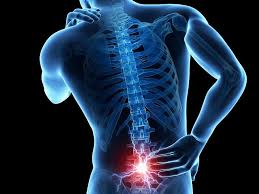
Persistent back pain could be an indication of prostate cancer - Expert
Reproductive health experts have warned that frequent urination, especially at night, and chronic lower back pain in men could be early signs of prostate cancer, a life-threatening disease that often goes undetected until it reaches an advanced stage.
The doctors expressed concerns over the increasing trend of men ignoring these symptoms, which they say could prove fatal if not addressed through timely medical intervention.
A health website, Cleveland, described prostate cancer as a type of cancer that develops in the prostate gland, a part of the male reproductive system.
It added that it is a common cancer that can be serious if it spreads to other parts of the body.
According to the Victoria State Health Authority, Australia, the three most common forms of prostate disease are inflammation, a non-cancerous enlargement of the prostate, and prostate cancer.
Speaking, the physicians urged Nigerian men to prioritise regular health checkups, especially once they reach the age of 50, and to consult medical professionals promptly when they notice unusual symptoms.
They warned that neglecting early warning signs such as chronic back pain and abnormal urination could mean allowing the disease to progress to a stage where it becomes far more difficult, if not impossible, to treat.
A Consultant Obstetrician and Gynaecologist, Dr. Akinsola Akinde noted that while frequent urination and chronic back pain were not exclusive symptoms of prostate cancer, they are common signs of prostate enlargement, which could either be benign or malignant.
Akinde, a former Chairman of the Society of Gynaecology and Obstetrics of Nigeria, warned that ignoring such signs or attributing them to ageing or stress could delay diagnosis and reduce the chances of successful treatment.
According to him, the inability to hold urine, the urgent need to urinate frequently at night, and the presence of blood in urine should raise red flags, especially in men within the high-risk age group.
He maintained that prostate cancer is a common condition among men, particularly those of African descent, and stressed that early detection through regular prostate-specific antigen testing can significantly improve treatment outcomes.
“We don’t know what exactly causes prostate cancer, but it is very common among black men, including African-Americans. All men are at risk, but once you are 50 years and above, you need to go for routine screening. If cancer is detected at stage one, it can be treated effectively and sometimes even cured,” Akinde explained.
He expressed concern over the general lack of health-seeking behaviour among Nigerians, lamenting that many men only go to the hospital when their condition has deteriorated to stage three or four, when options for treatment are limited and the prognosis is often poor.
He also criticised the state of the country’s health infrastructure, calling for more radiotherapy centres to be established across Nigeria.
He pointed out that prostate cancer is the second most common cancer in men after liver cancer, yet many geo-political zones lack the facilities needed for effective diagnosis and treatment.
Supporting these views, a Consultant Urologist at the Nnamdi Azikiwe University Teaching Hospital, Nnewi, Dr. Ahuizechukwu Obiesie, highlighted that constant lower back pain, particularly when it spreads to other parts of the body, is one of the key signs of prostate cancer and should never be ignored.
He explained that the prostate, a small walnut-shaped gland in men that produces seminal fluid, can become cancerous and start affecting nearby tissues, including bones, which often results in persistent back pain.
He stated that the most effective approach to treating prostate cancer is early detection, which allows for curative treatment options.
He said, “For prostate cancer, if it is detected early through proper investigative parameters, you can aim to cure it. That’s why symptoms like lower back pain and urinary difficulties should not be ignored.”
The urologist further warned that difficulty in passing urine, frequent urination within short intervals, and urgency, defined as the inability to delay urination once the urge is felt, are common lower urinary tract symptoms associated with prostate diseases.
He explained that many men mistake these signs for normal ageing or minor issues and fail to seek medical advice until it is too late.
“Prostate diseases often manifest as lower urinary tract symptoms. One of them is frequency when a man has to use the toilet more than twice within two hours. Another is urgency, where the person feels pressed and cannot hold it. When these symptoms, especially night urination, become excessive, say six times at night, it is a sign of a problem that needs attention,” Obiesie explained.





